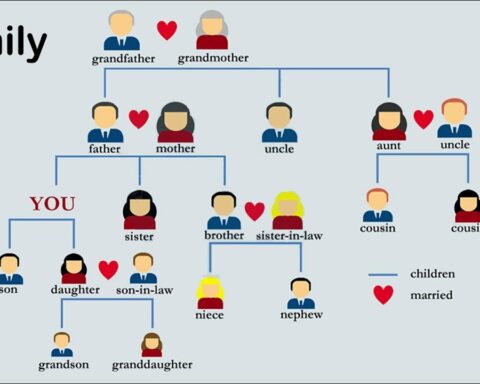Walking for one hour a day can help you lose significant weight. The process is even more effective when you couple the walking exercise with reduced calorie intake.
Weight loss has become a subject of interest for many people today, and people are willing to do everything and anything within their reach to achieve it. Different people are motivated by different reasons, with keeping fit, fitting in the beauty and modeling industry, and boosting one’s self-esteem being the main ones. Therefore, people use weight loss supplements, diet, and work out to shake off extra pounds. While those are the main methods of losing excess weight, walking for an hour can also help a person lose weight, and studies have seconded this. Dive into this article to understand why walking for at least an hour per day will help you lose weight and what to do to make the process effective.
Walking enhances calorie burning
Physiological processes, including the involuntary ones, burn calories the same way workouts do. Interestingly, walking is a form of exercise that also burns calories, and the number of calories burned largely depends on how fast you can walk and how much you weigh. For instance, a 55 kg heavy person can lose 154 or 275 calories by walking at a pace of 2 or 4 mph, respectively. On the other hand, a 136 kg person can lose 381 to 680 calories when walking at 2 or 4 mph, respectively. Clearly, the heavier you are and the faster you walk, the more calories your body burns.
You can lose significant weight by walking
The preceding paragraph has shown that you can lose many calories depending on your weight and walking speed. Consequently, you can also lose weight by walking since calorie loss reflects weight loss, and studies second this. For example, in one study conducted by Healthline, moderately-weighing female participants lost about 7.7 kg of weight after walking daily for half a year. Interestingly, the women did not experience substantial weight loss until they hit a walking duration of at least one hour a day, showing that effective weight loss is directly proportional to how long a person walks. In another study, obese female participants lost 1.2 kg after 12 weeks of walking 50-70 minutes a day. All these observations show that while walking can help you lose weight, you need to be consistent and increase your walking time.
Boost weight loss by lowering your calorie intake
It is clear that walking, especially for at least one hour a day, helps a person lose significant weight after some time. Still, coupling the walking exercises with a calorie-restricted diet makes weight loss more effective. For instance, one study involved obese people who focused on losing weight by lowering their calorie intake by 500-800 calories a day. They were divided into two groups, with one walking at a pace of 3.7 mph and 3 hours a week, while the other entirely relying on reduced calorie intake. After 12 weeks, both groups shook excess pounds but the first group that coupled calorie restriction with walking sessions.
What’s more, whether you walk continuously or take short bursts several times also influences weight loss. For example, in a study involving obese and overweight women who reduced their calorie intake to 500-600 calories a day, one group did two bouts, each lasting 25 minutes while the other group walked continuously for 50 minutes. The study established that the first group realized 1.7 kg weight loss, showing that short frequent bouts are more effective than one continuous sluggish walk. Still, other studies realized no differences in weight loss with intermittent or continuous walks, indicating that the results typically vary and one needs to identify his best fit.
How much weight will I lose by walking one hour each day?
The 500-calorie deficit has been used for a long time to estimate calorie loss though it is largely inaccurate. According to the myth, by reducing your calorie intake by 500 every day, you can lose 3,500 calories a week. The general calorie counting formula states that 3,500 calories equal 1 lb or 0.45 kg, implying that you can lose 0.45 kg in a week by burning 3,500 calories. This can be achieved by reducing the number of calories one takes through food, engaging in an exercise, or doing the two.
Generally, the myth has disappointed many because the body has a unique way of adjusting to increased calorie burning and will get used to expending fewer calories for the same processes, hence reducing weight loss with time. However, you can still lose 0.5-2 pounds in a week by reducing your calorie intake by 500 each day. You can eat less and walk for one hour because the combo works well.
Walking has other health benefits
Although you might be solely thinking about weight loss when you opt to walk for one hour a day, such an exercise has many other health benefits. For instance, it enhances your bliss molecules and lifts your mood, ultimately boosting your overall well-being. Besides, as you walk and burn fats, you decrease the bad cholesterol linked to heart disease and give room for more good cholesterol.
Additionally, by walking and observing nature, you give your system a chance to battle stress effectively. As if that’s not enough, walking at least one hour a day is an effective method to lower your blood pressure. Interestingly, these benefits translate to improved life quality and reduced risks of heart disease, unnecessary weight gain, obesity, overall mortality, and diabetes type 2. What’s more, maintaining walking exercises every day helps millions avoid putting the extra 1.1 – 2.2 pounds every adult puts on every year.
Conclusion
Weight loss is a hot subject and people work out, diet, go for weight loss surgeries, and even use supplements to achieve it. Thankfully, you need not take supplements or go for surgeries to lose weight. Instead, you can walk for at least one hour every day, and depending on your speed and weight, you can shake off as much as 7.7 kg in half a year. To make the process more effective, combine walking with calorie restriction by reducing portion sizes and fatty food intake.
- Products That Assist with Stress Relief - September 21, 2023
- TRÈFLE – THE ROAD TO THE 15TH - July 29, 2023
- Lovingly thought out educational toys - July 5, 2023









